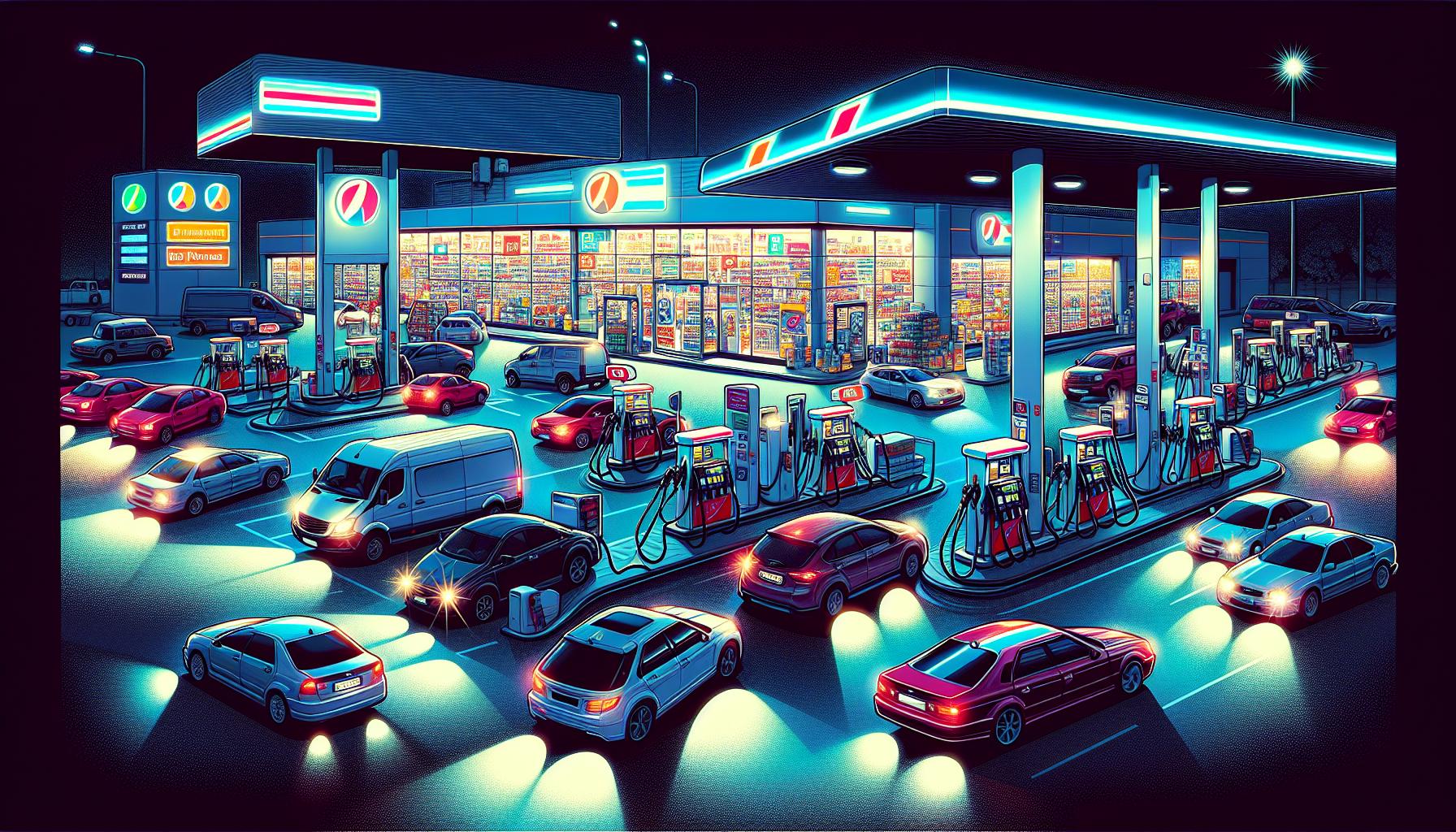Convenience Retail Expansion: Gas Station Deals Expected to Increase in Australia
Gas stations in Australia are poised for more deals as companies like Ampol look to expand their convenience retail offerings and diversify their profit sources beyond traditional fuels. Major players including Ampol, Viva Energy, and Chevron have been active in the market, acquiring additional gas stations and upgrading sites to provide a wider range of products and services, such as groceries, takeaway food, and even fast-food restaurants.
Increasing their footprint not only allows companies to offer more convenience to customers, but can also help them negotiate better terms with suppliers, leading to cost savings. Viva Energy, for example, recently gained regulatory approval for its acquisition of OTR Group, while also agreeing to sell 25 stores in South Australia state to Chevron. This move is part of Viva Energy's strategy to reduce its reliance on income from traditional fuels.
Similarly, Ampol has been expanding its share of the market, including its acquisition of Z Energy in New Zealand in 2022. Despite inflationary pressures, Ampol's Convenience Retail business reported a 2.1% increase in earnings before interest and tax, reaching 355 million Australian dollars in 2023.
According to Matt Halliday, the chief executive of Ampol, the industry is expected to continue evolving and witness further consolidation. As part of Ampol's efforts to grow its Convenience Retail division, the company has rebranded more of its stores to Foodary and recently extended a trial of fast-food restaurant Hungry Jack's at select gas stations. Ampol also aims to expand its presence in online delivery platforms such as Uber Eats and DoorDash.
Looking ahead, the rise of electric vehicles could drive further deals for gas stations. As companies seek to establish a network of fast-charging points, the convenience retail business can benefit from the provision of on-the-go charging networks. Ampol plans to expand its on-the-go charging network to 300 bays in Australia and 150 bays in New Zealand by the end of this year.
"We've got a competitive advantage in this space," said Halliday. "What's really important is we see infrastructure lagging the uptake of electric vehicles."
In conclusion, the convenience retail expansion in Australia's gas station sector is expected to continue, driven by companies' desire to broaden their profit drivers beyond traditional fuels. With more consolidation anticipated and the increasing adoption of electric vehicles, gas stations have the opportunity to transform into hubs offering a range of services to meet customers' evolving needs.
Analyst comment
Positive news: More deals are likely for gas stations in Australia as companies expand their convenience retail offerings and diversify profit drivers. Market will see increased consolidation and expansion, with potential benefits from cost savings and better supplier terms. The takeup of electric vehicles could further spur deals as companies scale up fast-charging networks. Overall, the market is expected to grow and evolve in response to changing consumer needs and industry trends.













